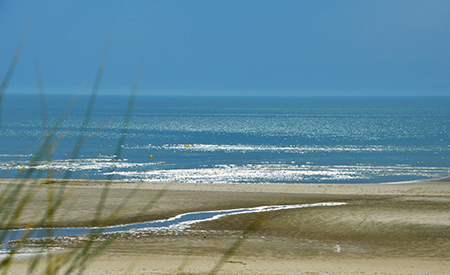/FEM/TROPHIK
Type of resources
Available actions
Topics
Keywords
Contact for the resource
Provided by
Formats
status
-

This study investigated the effects of a spatial closure during the exploitation phase of an offshore wind farm in the extended Bay of Seine (English Channel, France) using Ecospace, a spatially and temporally explicit module of Ecopath with Ecosim.
-

This document identifies gaps in knowledge and emphasizes the need for long-term monitoring of marine mammals in order to better understand the impacts of wind turbines on them
-

This document presents an analysis of the isotopic ratios of organisms sampled on the site of the future Windfarm.
-

This document briefly presents the methodology used to build the Ecosim and Ecospace models representing the extended Seine Bay ecosystem as well as the main results.
-

This paper presents an open source framework for modeling current and future ecological niches of marine species
-

This report presents the analysis of the effects of climate change on the spatial distribution of different marine species frequenting the study site called Baie de Seine étendue using ecological niche models
-

This study analyses the sensitivity of network indices to the cumulative effects of the Courseulles sur mer wind farm and climate change
-

This report studies the effect of the cumulative effects of climate change and the reef effect induced by the implementation of the Courseulles sur mer wind farm on the emergent properties of the ecosystem, as well as the sensitivity of the ENA to a cumulative impact.
-

This paper presents a first framework for OSPAR Regional Sea Convention food web indicators based on ENA. These are presented here focusing on their applicability and what is needed for implementation, illustrating their potential use by case studies.
-

The objective of the TROPHIK project was to model the role of offshore wind turbines and other anthropogenic activities in modifying the functioning of thefood webs of the Bay of Seine by taking climate change into account. TROPHIK has initiated a methodology to move from the sectoral vision of environmental impact studies to a functional and holistic approach. The analysis of the sensitivity of the functioning of the food web to the development of offshore wind farms represents a solid basis for recommending new areas of implantation. This approach will be completed within the framework of APPEAL and WINDSERV by integrating the societal and economic environment as well as biogeochemical forcings
 Catalogue PIGMA
Catalogue PIGMA